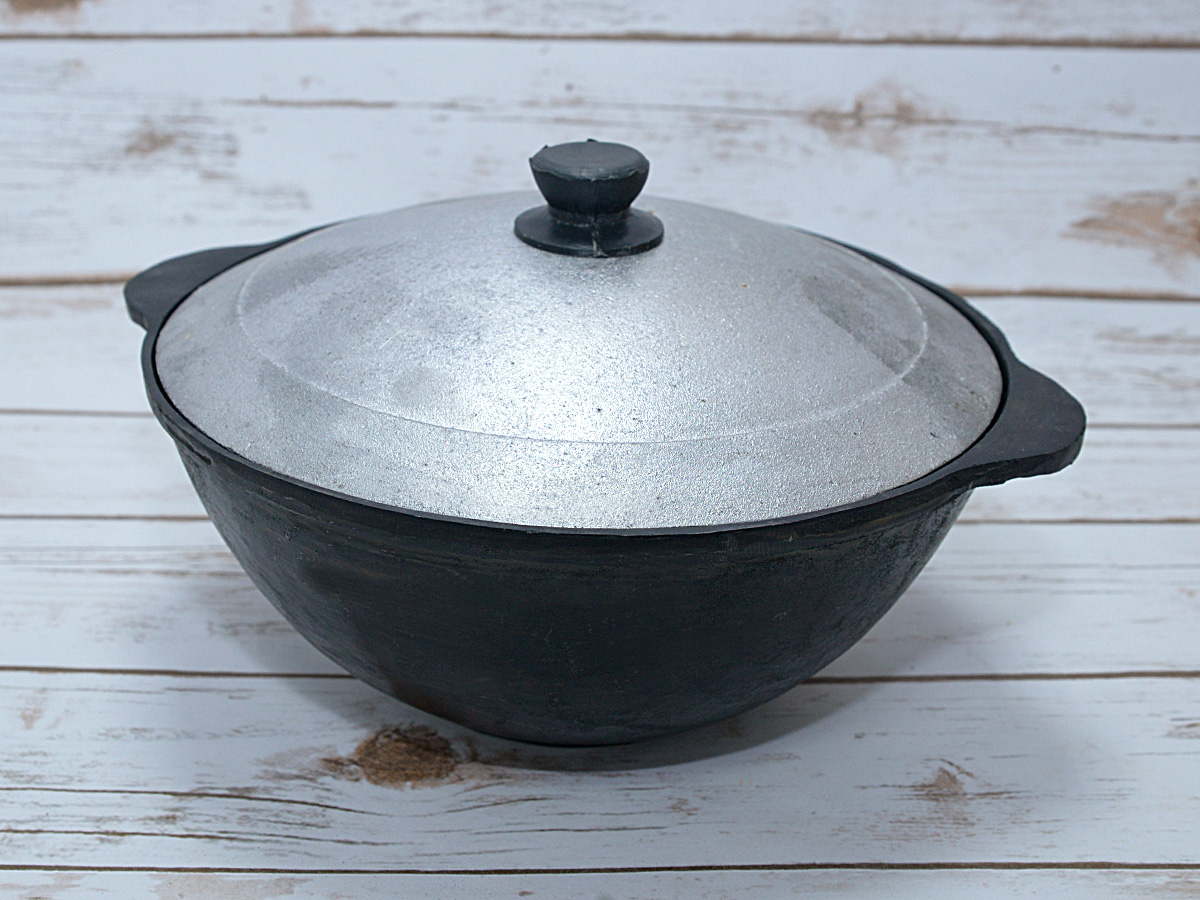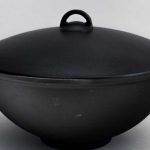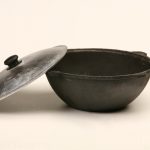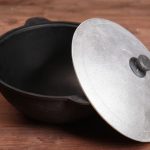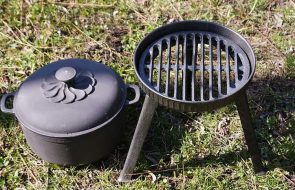Such an unusual dishware as a cauldron is becoming increasingly popular these days. Outwardly, it looks like a semicircular pot of black or dark gray color. Translated from Turkic, the word "cauldron" means "a vessel scraped clean". The cauldron has a number of valuable properties that make it a universal container for cooking almost any food.
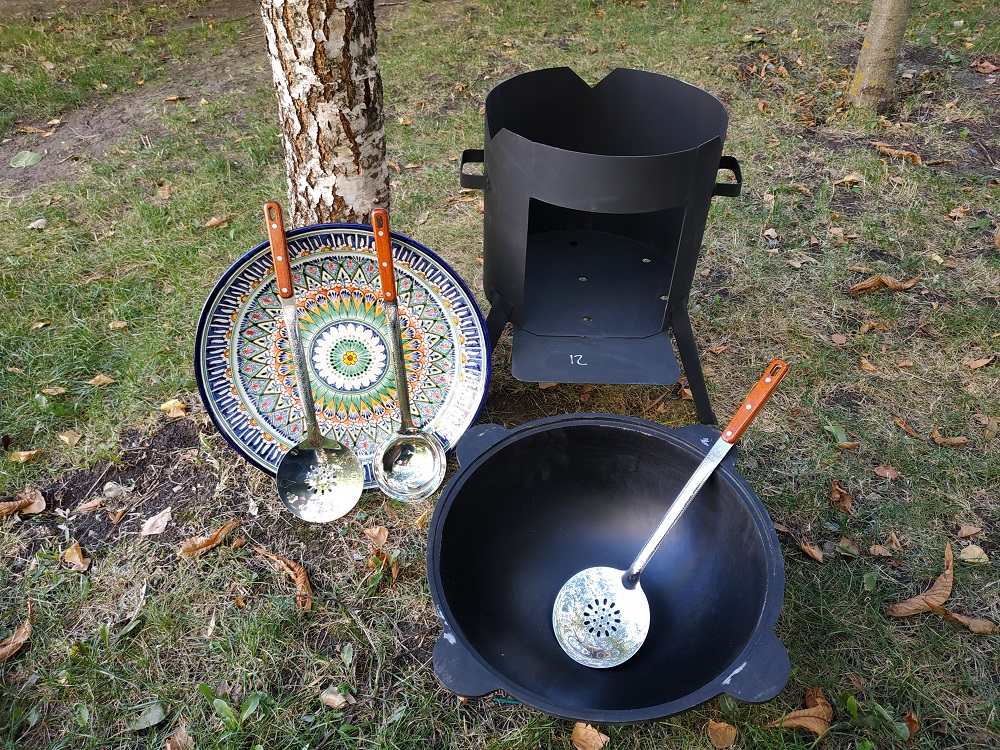
Content
- Advantages of Uzbek cast iron cauldrons
- Pros and cons of cauldrons from Uzbekistan
- Unique features of Uzbek cauldrons
- How to choose a quality product
- How to process and prepare a cauldron for cooking
- What dishes can be cooked in Uzbek cauldrons
- Is it possible to use a cauldron on the stove at home
- How to care for an Uzbek cast iron cauldron
- Conclusion
- VIDEO: How to properly fire a new cast iron cauldron.
Advantages of Uzbek cast iron cauldrons
The Namangan kazan is a dish with a unique shape and ancient origin. The food cooked in it has an excellent taste and juiciness, because during cooking it does not burn anywhere, does not dry out, but is evenly cooked. Wherever the food is: at the very bottom, or under the lid, it will definitely be the same consistency. To please guests or restaurant customers, it is worth using an Uzbek kazan.
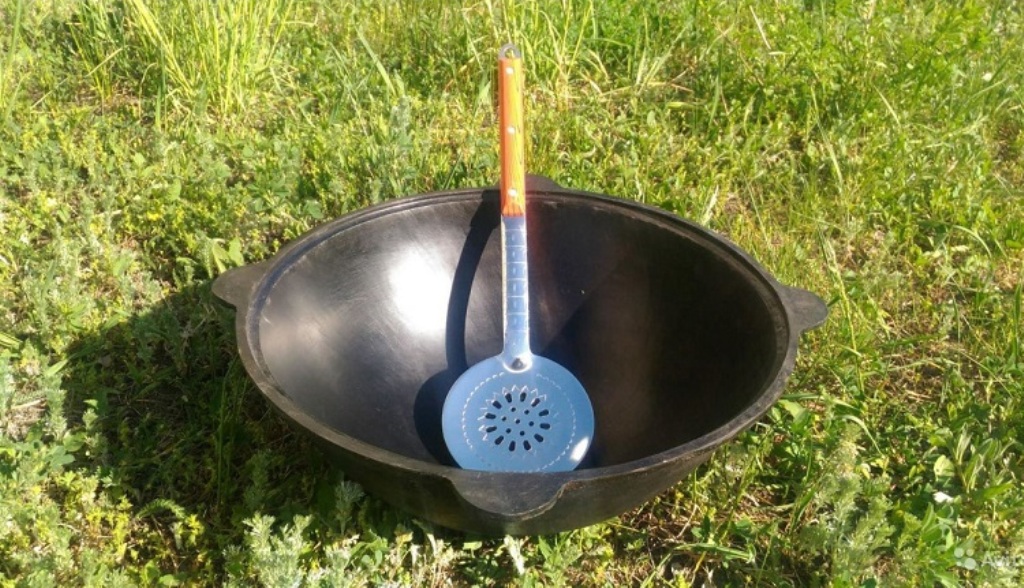
The history of the cauldron begins more than a century ago, when cast iron cauldrons began to be made in the city of Namangan. They were cast from a large amount of material, so the walls of the product were thick, which the owners really liked. The large and heavy vessel retained heat well, which allowed home-cooked food not to be heated up for a long time. Modern man simply adopted this wonderful tradition.
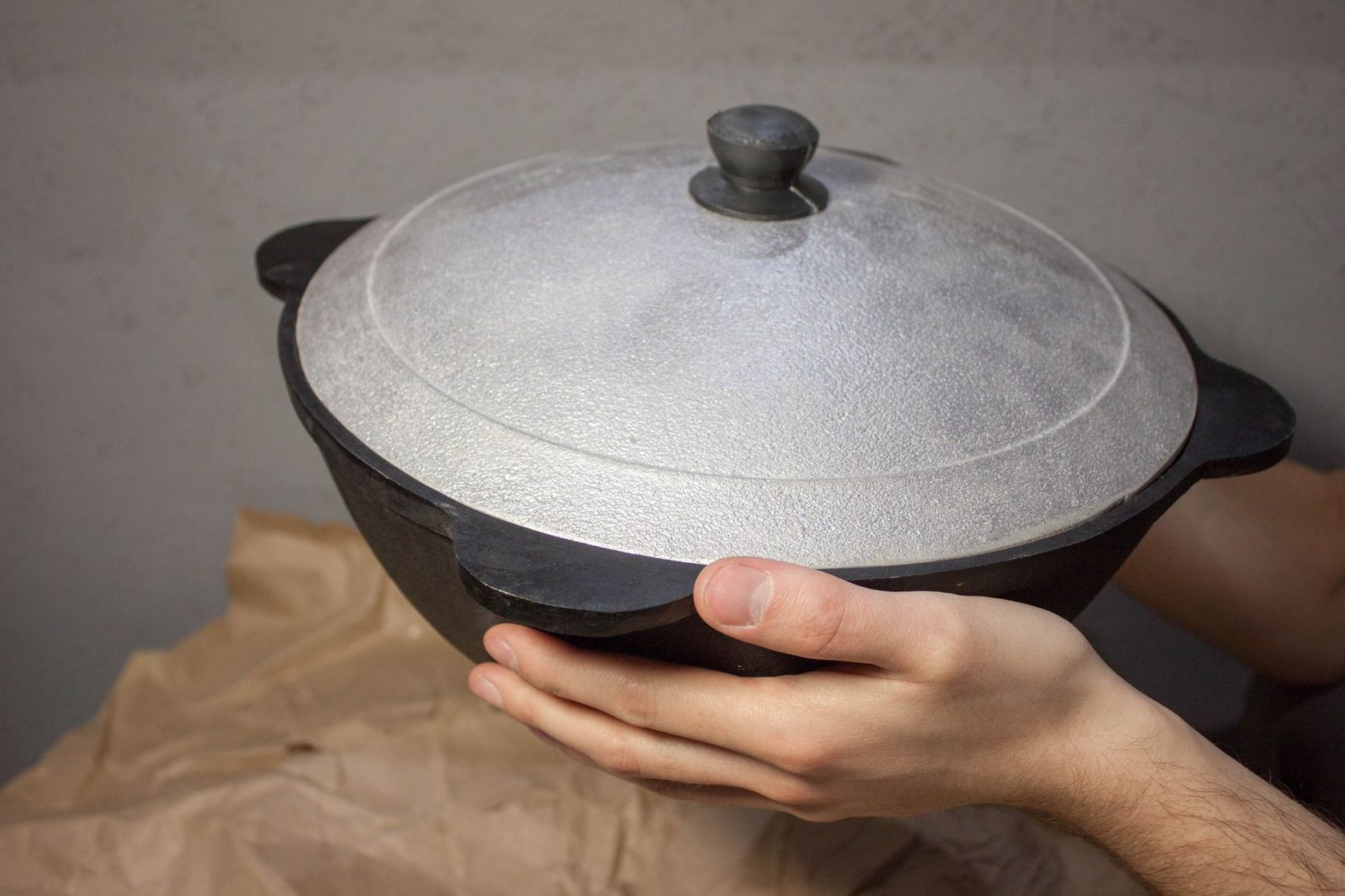
Pros and cons of cauldrons from Uzbekistan
The Uzbek cauldron has many undeniable advantages. Firstly, it is very multifunctional, that is, it is suitable for cooking a large number of dishes. Secondly, unlike other dishes, the cauldron is unusually durable. If you drop it, it will not deform. The reliable material is resistant to any mechanical impact. Thirdly, as mentioned earlier, this dish is heat-intensive. Fourthly, it is very easy to care for - just wash it thoroughly with any detergent and a hard sponge.
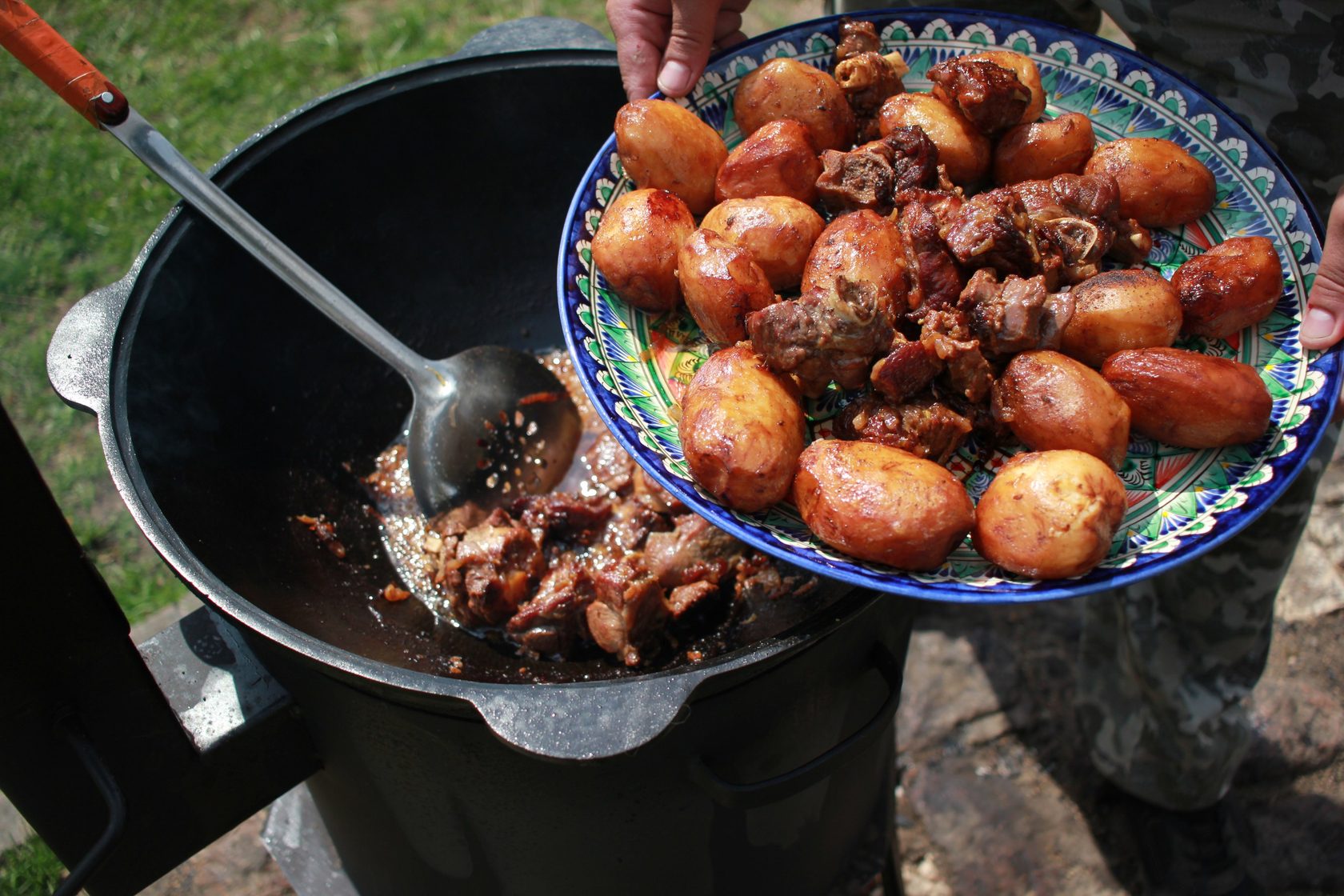
However, those who use the cauldron regularly will notice that there are a number of disadvantages that slightly spoil the cooking process. This is due to the large dimensions of the dishes: it weighs about ten kilograms, plus it takes up a lot of space in the cupboard. Because of this, it should be stored only on securely fastened shelves, and handled with care - if such a colossus falls, for example, on your foot, then serious injury cannot be avoided.
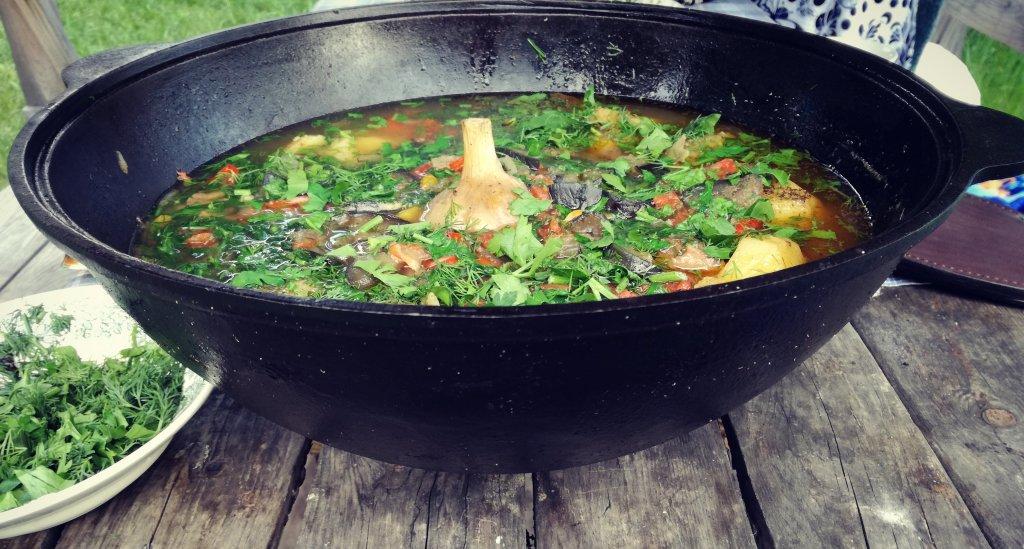
Unique features of Uzbek cauldrons
In addition to the above-mentioned features, Namangan cauldrons are made by hand. Any Uzbek will say that there is no better way. This is why the walls are so thick - in some places their thickness reaches a centimeter. To create this kind of utensils, pure cast iron is used without additives and impurities.
What are the distinctive features of an Uzbek cast iron cauldron compared to a regular aluminum one?
Many people have aluminum cookware at home for cooking outdoors. How does it differ from a cast iron cauldron? There are several. The most obvious difference is the material. An aluminum cauldron has a different color, it is lighter. Because of this, you cannot simmer dishes in such a cauldron for a long time - the heat simply evaporates. Food can burn - the walls are thin, and the part that is closer to the fire will fry faster. Of course, there are advantages. An aluminum cauldron can be taken with you on a hike, because it weighs three times less than a cast iron one. You can cook soups, lagman, and almost all types of dishes in it that are suitable for its cast iron brother.
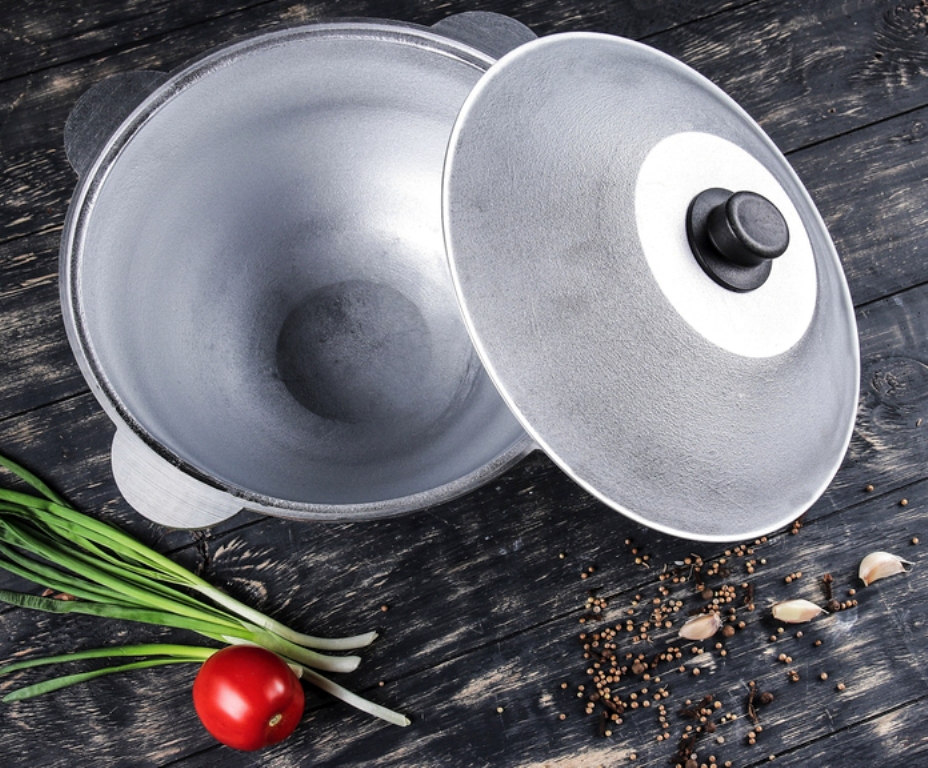
How to choose a quality product
When going shopping, it is necessary to clarify some points so that the purchased product brings only joy and benefit. The first criterion will be the size of the walls. The thicker, the better. It is better not to look at thin-walled cauldrons at all.
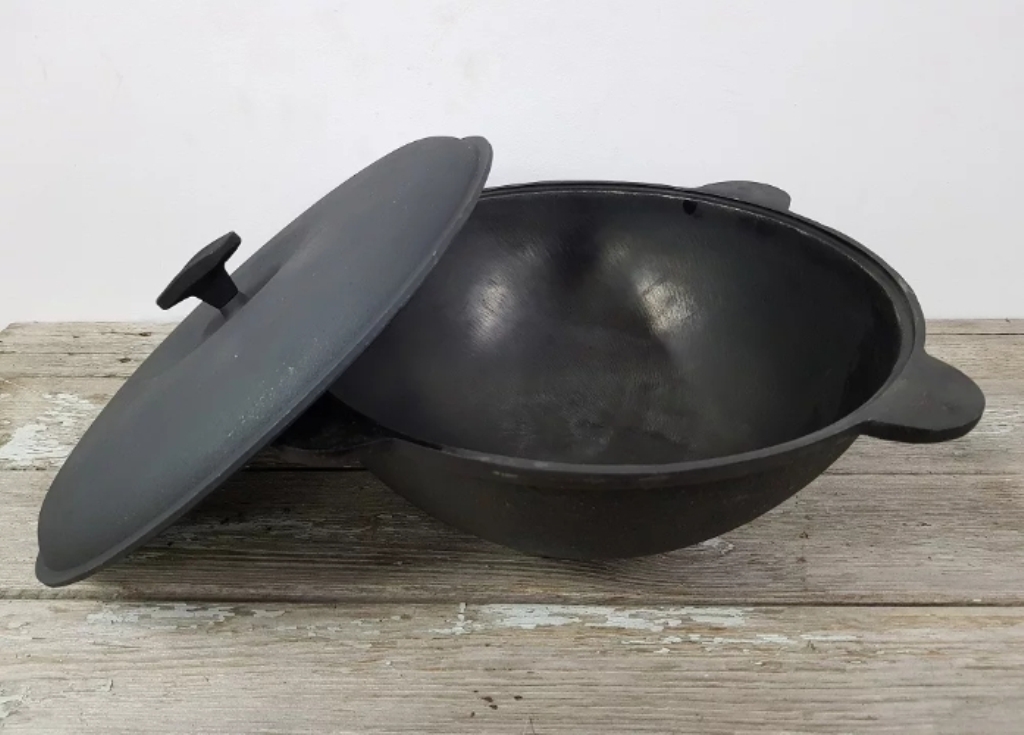
Important! If the cauldron has any coating inside. It happens that manufacturers add Teflon to cast iron. You should not take such a product - with intensive frying followed by washing with a hard sponge, such non-stick protection will fly off in no time.
The second important point is the size of the cookware. Here everything depends on the personal preferences of the person and the future goal. If you plan to cook for a family of several people, then a 3-5 liter cauldron will be enough. For a large company, you need a larger one. Those who have a summer house can afford a giant 15-18 liter vat. It needs a special place, located away from residential buildings and flammable objects.
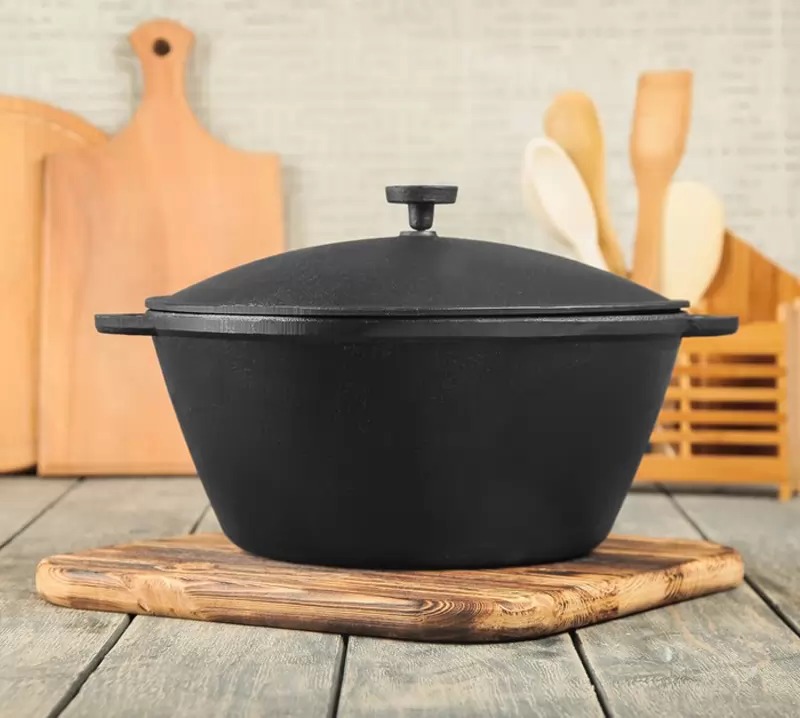
The shape is also important. Traditionally, food is cooked over an open fire in a hemispherical dish. This design allows for uniform heating. But you can't use a cauldron of this shape in the kitchen. What to do? The store sells cauldrons with a flat bottom, resembling heavy saucepans. They also produce special stands on which the cauldron is placed and cooked on the stove. If the stove has an induction panel instead of burners and hotplates, then choose a model with a bottom made of ferromagnetic alloy.
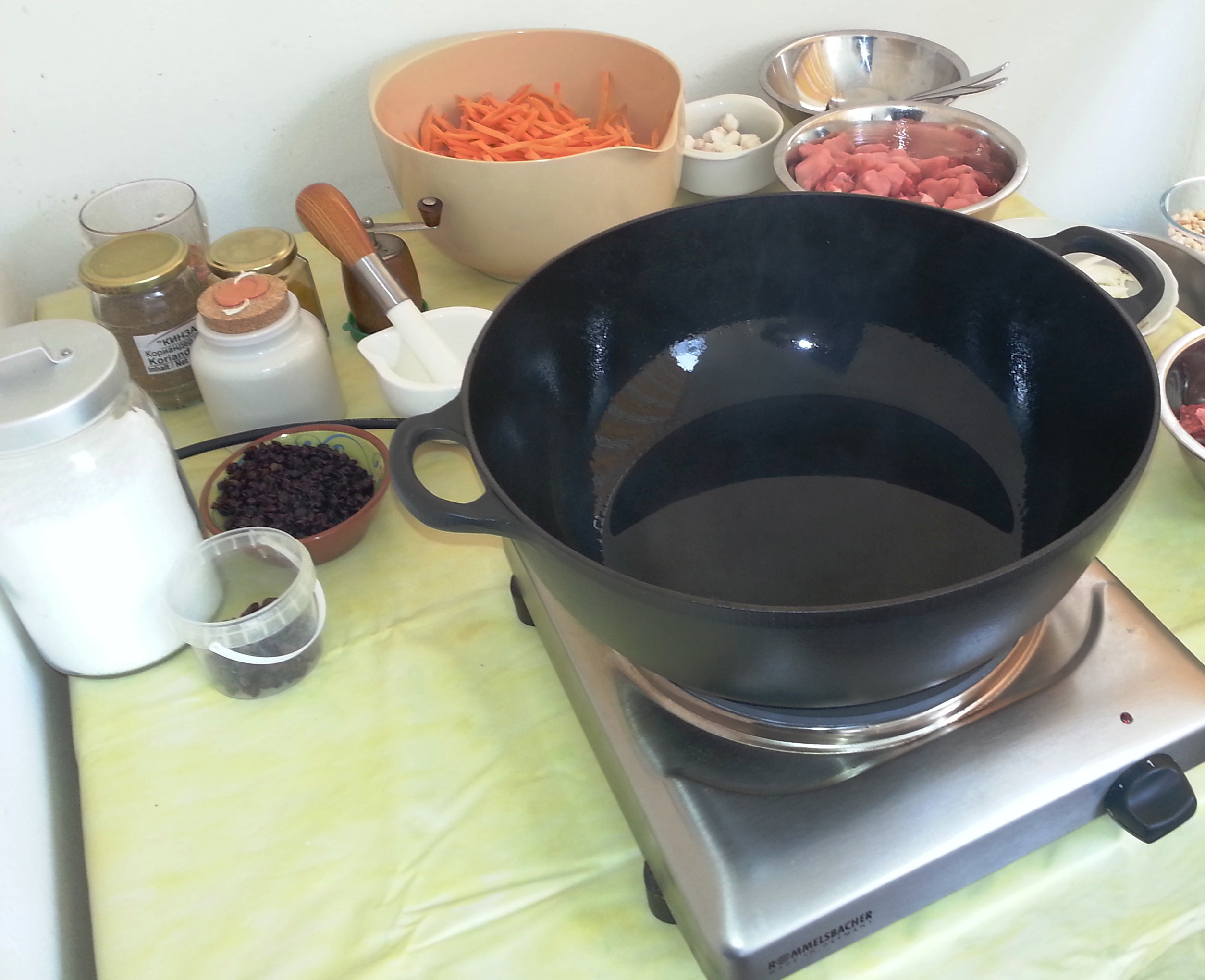
The buyer should also examine the inside of the cauldron. There should be no chips, deep holes (a small pit of one millimeter or light rust is allowed), roughness or other defects. If the set includes a lid, it should fit tightly and evenly to the edges of the cauldron, without gaps. You can buy a special mitten for the lid so as not to burn yourself.
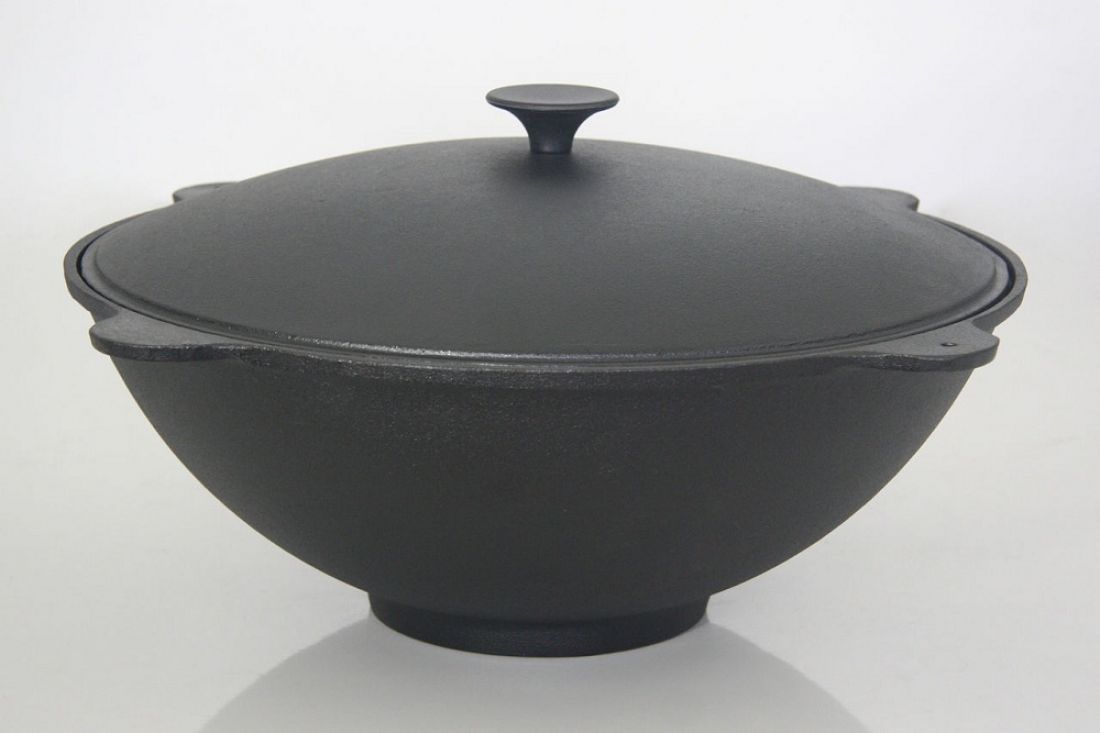
How to process and prepare a cauldron for cooking
A newly purchased cauldron cannot be used immediately. It needs to be prepared, because not only dust and dirt, but also traces of machine oil used in production may remain inside.
The initial step is calcination over a fire. The cauldron is washed with warm water and wiped dry. When the smoke stops, the flame is reduced and half a liter of vegetable oil is poured onto the bottom. It is necessary so that nothing sticks to the walls of the vessel during cooking.
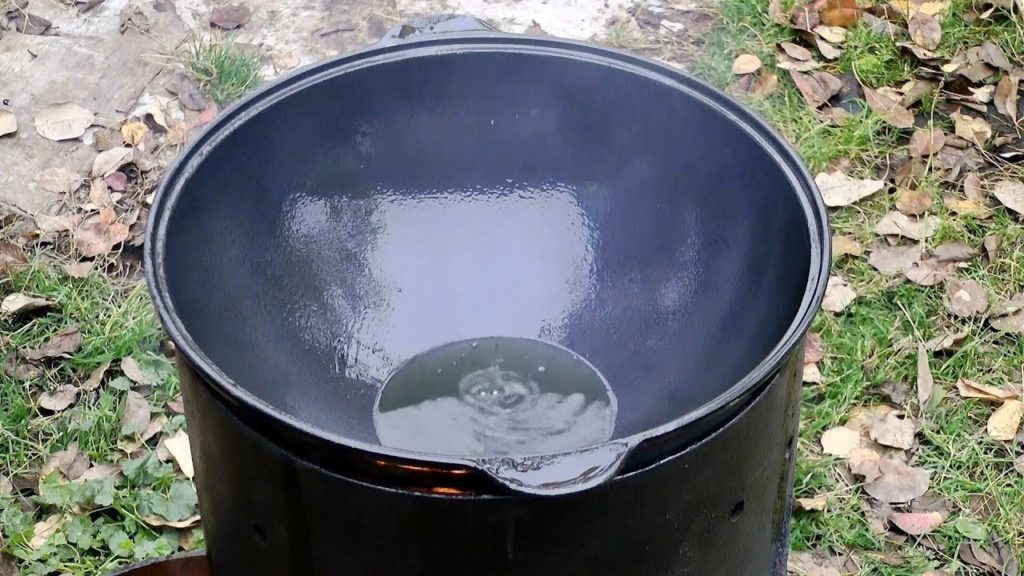
During the procedure, the cauldron must be carefully rotated, trying to ensure that the oil penetrates all the pores and spreads in an even layer. This is done until the walls become reddish. Afterwards, the cauldron is cooled, washed again without soap and dried with a rag or paper towel.
Calcination at home is done in a different way. The oven is heated to two hundred degrees. The dishes are placed inside. Soon, an unpleasant smelling blue smoke should come out of the oven. This is the grease burning. When the process stops, the cauldron is ready. Then the same thing - washing and drying.
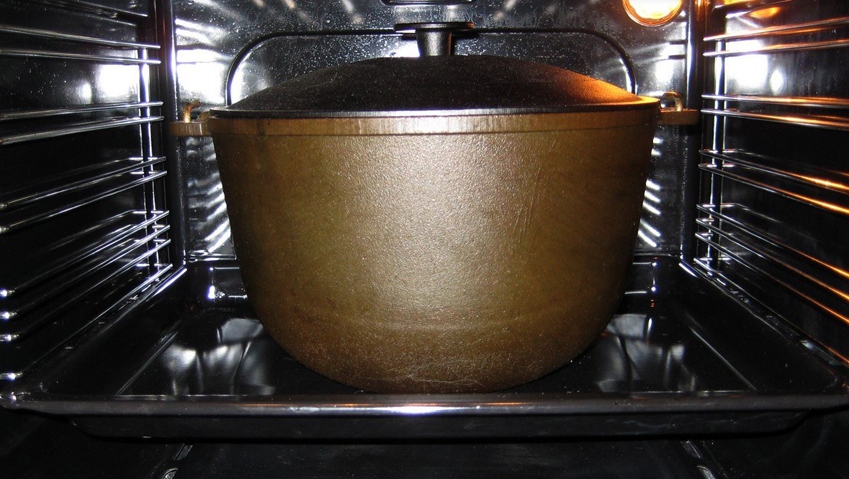
It is more difficult to calcine on the stove. Several packets of salt are poured onto the bottom. During heating, the salt should be moved around the dish, sprinkling it on the walls so that the oil is absorbed. When the salt turns from white to brown, the process is considered complete.
To prepare a cauldron, you don't need to have any special abilities or skills. You just need to strictly follow the instructions and observe safety precautions: don't stand near the fire, use potholders, towels or thick mittens.
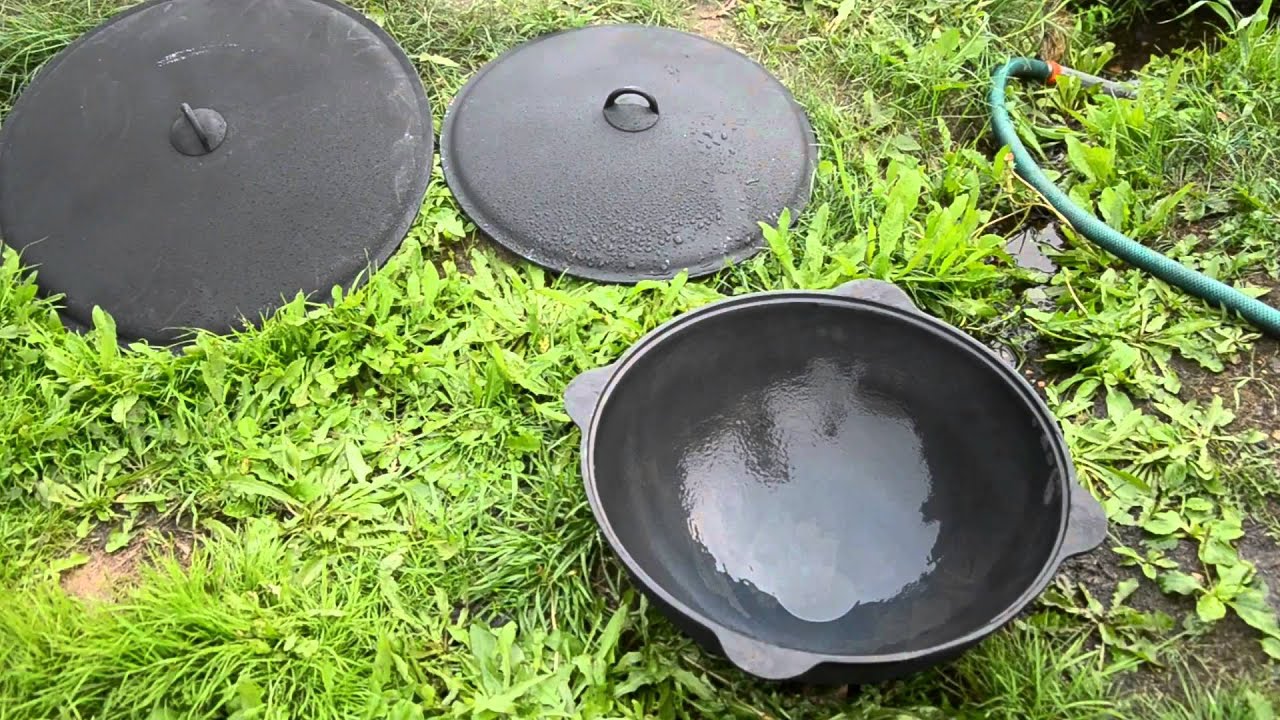
What dishes can be cooked in Uzbek cauldrons
Food prepared this way is much tastier and healthier. The products are not fried or boiled, but stewed, preserving microelements and a supply of useful substances. Due to the oil non-stick layer, the food does not have a burnt taste.
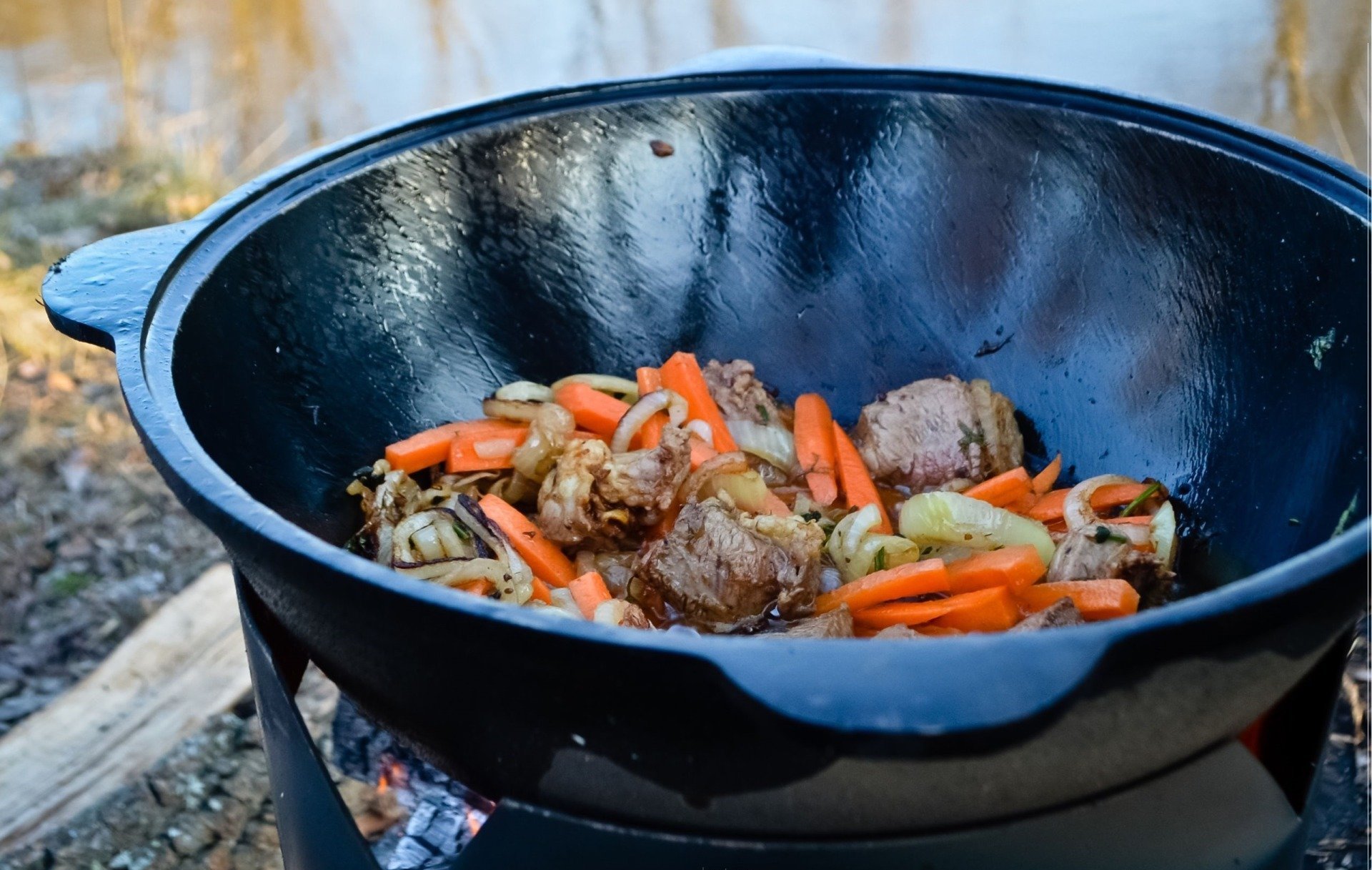
Cooking over a fire has its own nuances.
- Before loading the products, you need to melt the lard or pour in the oil so that it heats up.
- It is necessary to use a large amount of onion. The onion juice evaporates and circulates throughout the cauldron.
- Cooking takes place under a tightly closed lid.
- Strong fire is important.
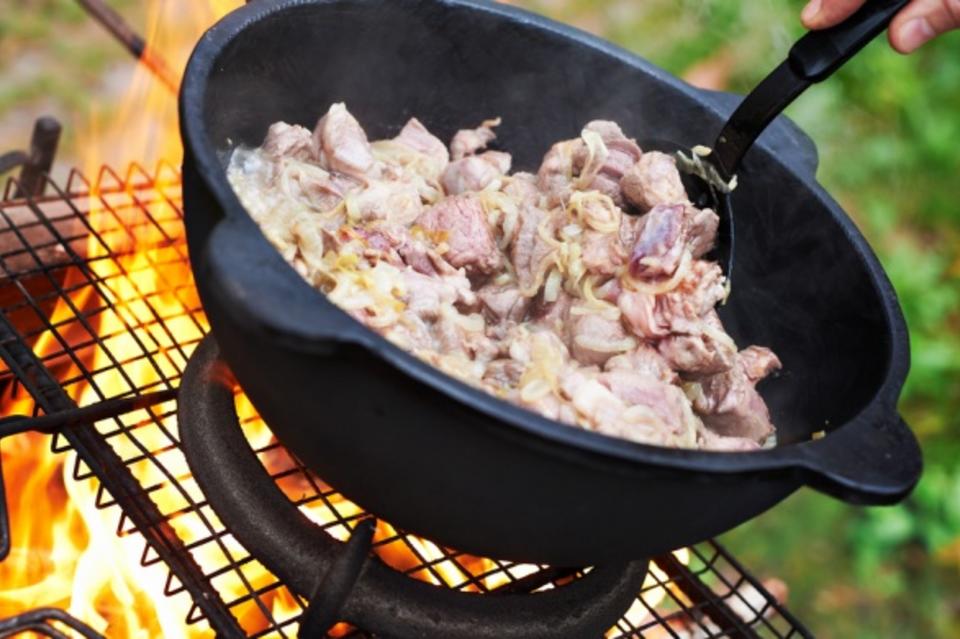
The list of possible dishes is huge. One of the first that comes to mind is pilaf. The same ingredients are used to prepare it as usual:
- five heads of onions;
- kilogram of meat;
- three glasses of rice;
- garlic;
- four glasses of water;
- spices, salt;
Next, the cauldron is heated, meat and vegetables are put into the melted fat. Everything is fried for about fifteen minutes, salt and spices are added. Then rice is poured in. To make it softer, soak it for about twenty minutes. Do not mix the rice with the meat. Everything is poured with water and simmered under the lid for half an hour. After removing from the heat, let the dish sit for some more time.
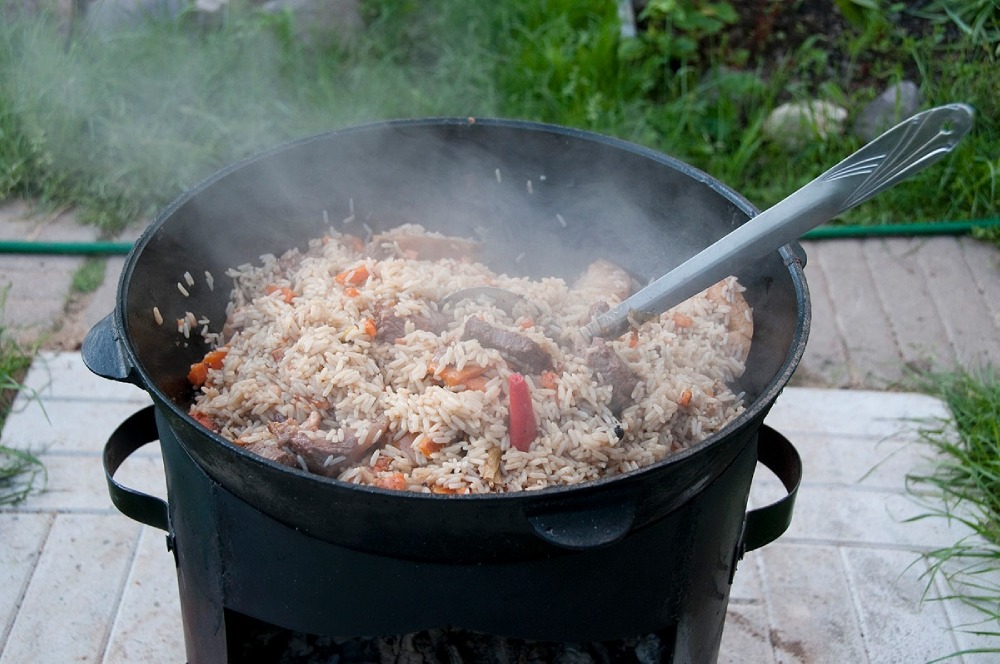
Pilaf prepared in this way is distinguished by its special juiciness, looseness and incredible aroma.
In addition to pilaf, a cauldron is good for cooking lagman, potatoes with meat, various soups (including fish soups), vegetable stews, noodles with beef, and just roasts. The features of a cauldron give any product an incomparable taste and smell.
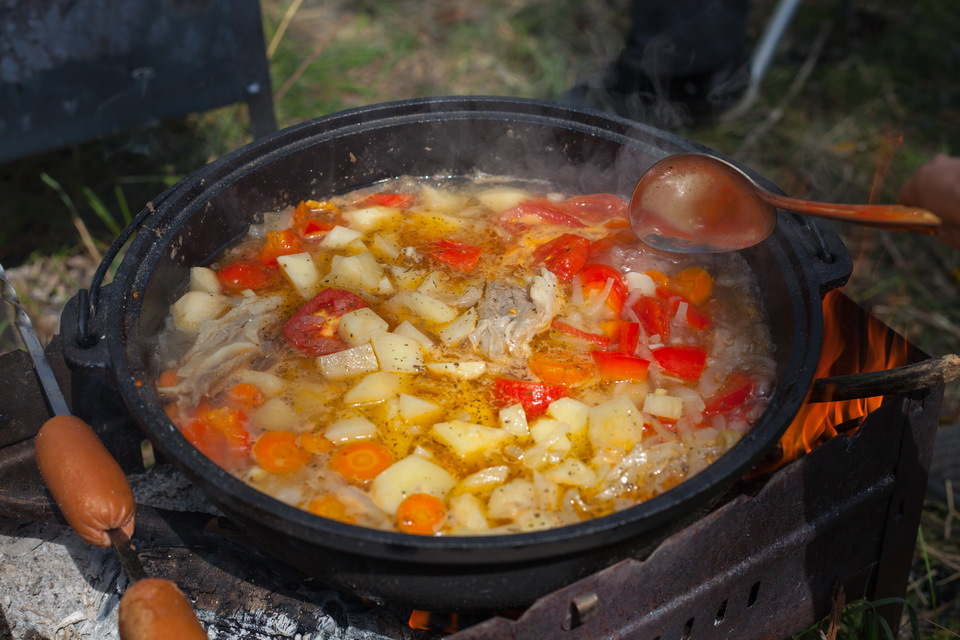
As when cleaning a cauldron, you need to follow safety rules and monitor the fire.
Is it possible to use a cauldron on the stove at home
Yes, it is quite feasible. Instead of a round vat, take a flat-bottomed one, put it on the stove, heat it on the flame. The first 10-20 minutes it should be large. Then it gradually decreases. The set of dishes is exactly the same as for a fire: soups, fried meat and poultry, fish, traditional Asian dishes.
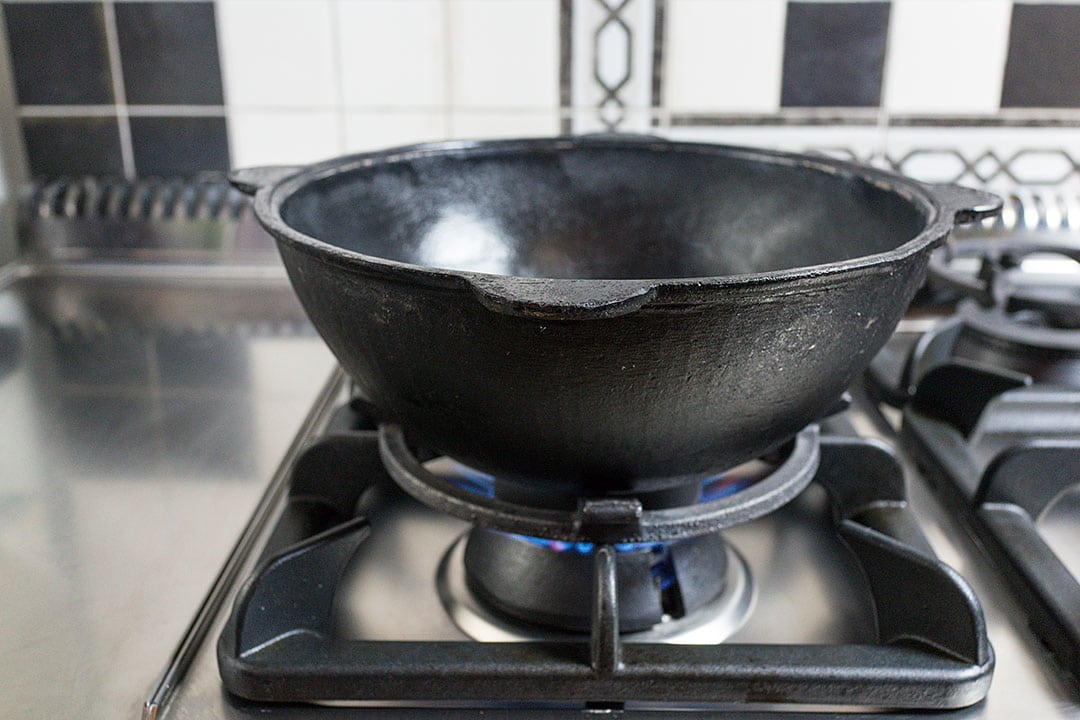
How to care for an Uzbek cast iron cauldron
Any kitchen utensil requires care. The cauldron is no exception. In order for it to serve as long as possible, it is necessary to follow a list of rules.
- After cooking is complete, the cauldron is cleaned of any food residue.
- Modern detergents are very corrosive, so it is better not to use them when washing. Thorough rinsing with water is enough. Sticky pieces of food can be removed with a rag.
- Then water is poured into the cauldron and brought to a boil.
- When all the excess has come off the walls, the water is drained and the cauldron is cooled. The dry walls are greased with oil, and the cauldron is put away until the next cooking.
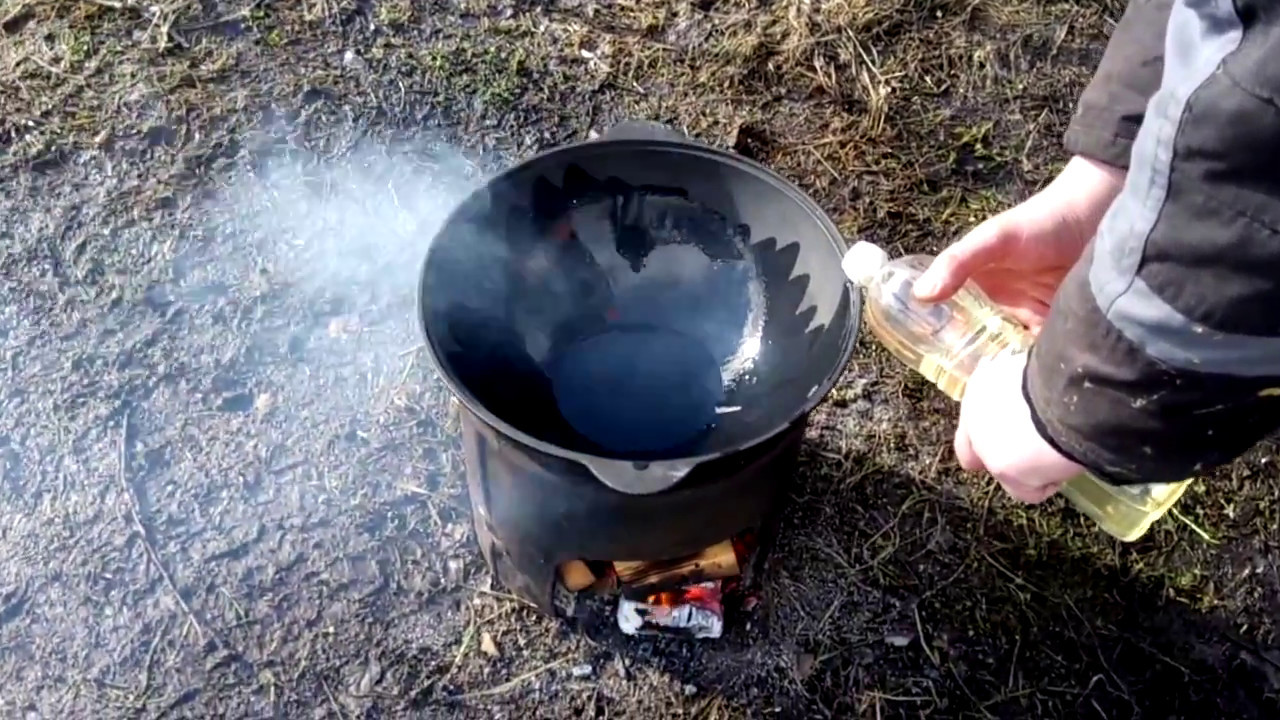
If the food is "sticky" and cannot be cleaned with plain water, add a couple of tablespoons of table salt. Soda also helps, but it is fine and penetrates into the pores of the dishes.
In addition to the rules for washing, there are rules for storing the cauldron.
- The cauldron should only stand in a dry place. Humidity is harmful to cast iron - rust appears.
- It is recommended to lubricate the inside of the walls with vegetable oil. It protects the cauldron from oxidation and prevents food from burning.
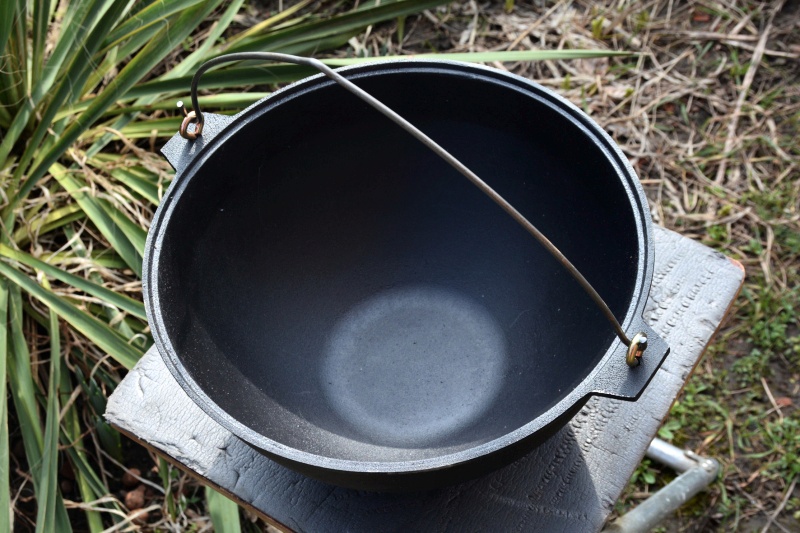
To avoid the appearance of a rancid smell and dust, the cauldron should be stored in a well-ventilated area, regularly wiping off dust.
The product can be washed with warm water without powders, “fairy”, soap and other means. They easily penetrate the pores of the dishes, which is unsafe for health. In addition, during cooking, a strong smell of soap will be felt. Do not “scrape” the walls of the cauldron with very hard, iron sponges. An ordinary kitchen sponge with a harder side will do.
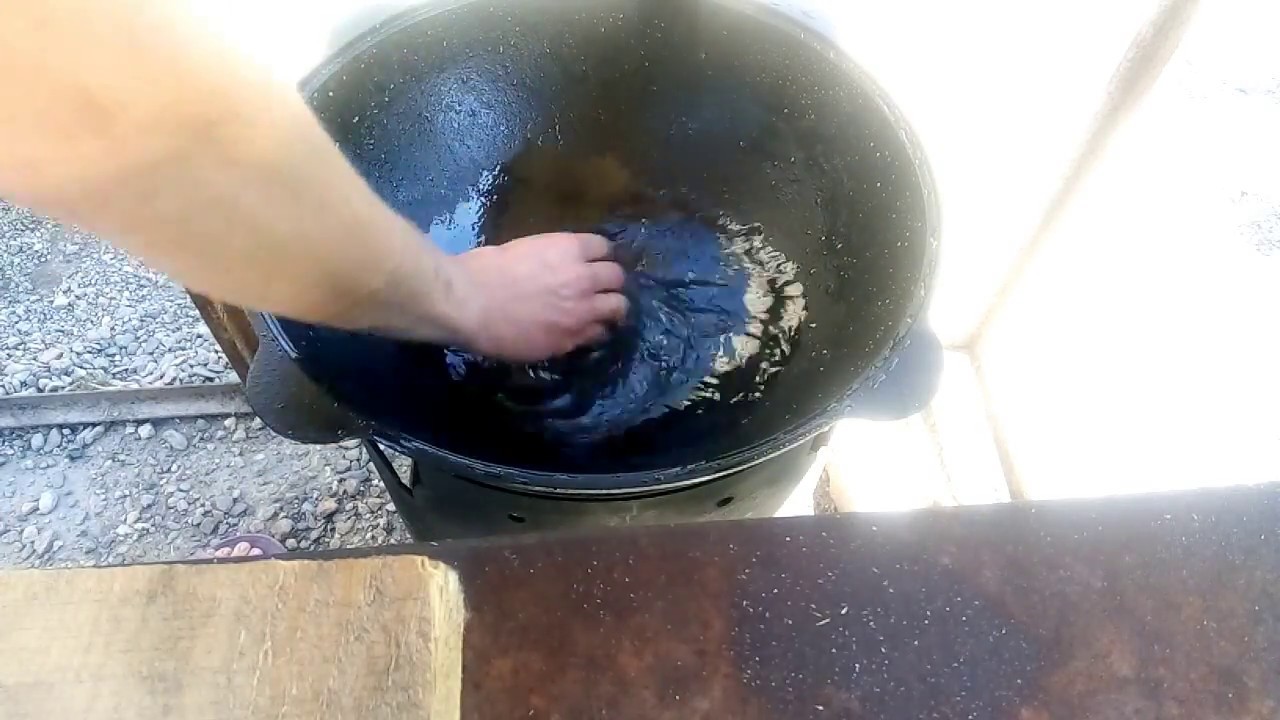
Following simple tips will preserve the cauldron for many years.
Conclusion
A cauldron is a unique and convenient cookware for cooking any food. Despite its size, it has more advantages than disadvantages. In order to use a cauldron correctly, you need to know a number of rules and follow fire safety techniques. Dishes cooked in a cauldron have an unrivaled taste and are also healthy. You can use a cauldron both outdoors and at home.
